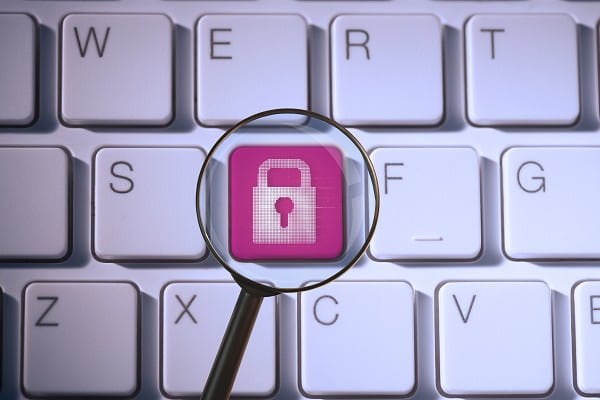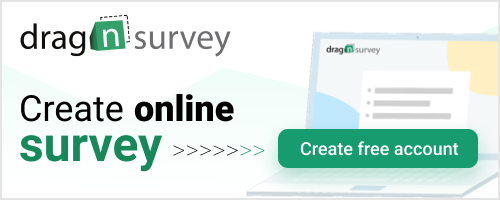The data collected through online surveys is often of a sensitive and personal nature, such as contact information, opinions, or information about consumption habits. A leak or malicious use of this data can have serious consequences for the individuals concerned, such as privacy violations or risks of discrimination.
It is therefore essential for companies and organizations to implement effective security and confidentiality measures to protect the data collected through their online survey software. In this article, we will look at the challenges of data protection, best practices for securing collected data, and how to manage this data in a responsible and ethical manner.
>> Points to consider when choosing survey software, click here

The Challenges of Data Security and Confidentiality
Data protection, especially personal data, is a major concern in the digital age. Companies and organizations must take the necessary measures to ensure the security and confidentiality of the information collected in order to avoid any risk of privacy violation or harm to the individuals concerned.
The Importance of Personal Data Protection
Personal data is information that directly or indirectly identifies a natural person. This can include names, addresses, phone numbers, email addresses, location data, but also opinions, preferences, or information about health or lifestyle habits. Protecting this data is crucial to preserve individuals’ privacy and avoid any risk of discrimination or reputational harm.
Risks Associated with Poor Data Management
A data leak or malicious use of collected data can have serious consequences, both for the individuals concerned and for the companies or organizations responsible. In addition to privacy violations, this can lead to legal action, fines, loss of customer trust, and significant reputational damage. Cybercrime also represents a non-negligible risk, with hackers seeking to steal or misappropriate data for malicious purposes.
Legal Obligations Regarding Data Protection
Many countries have adopted strict regulations regarding the protection of personal data, such as the General Data Protection Regulation (GDPR) in Europe. These regulations require companies and organizations to implement appropriate security measures to protect data, inform the individuals concerned about the use of their data, and respect their rights, such as the right of access, rectification or erasure of data. Failure to comply with these obligations can result in severe penalties.
Best Practices for Securing Collected Data
To ensure the security and confidentiality of data collected through online survey software, it is essential to implement a set of technical, organizational, and human measures. These best practices aim to protect sensitive information against any leaks or malicious use.
Choosing a Reliable and Secure Survey Software
The first key element is choosing a reliable and secure online survey software. It is important to select a recognized tool, developed by a credible publisher that complies with security standards. The software must have data encryption, enhanced authentication, and strict access controls. It must also be regularly updated to address potential security vulnerabilities.
Implementing Technical Security Measures
Beyond the survey software, it is essential to deploy complementary technical security measures. This includes using firewalls, antivirus software, intrusion detection systems, as well as encrypting stored and transmitted data. It is also recommended to conduct regular security audits and implement data backup and restoration procedures.
Raising User Awareness of Best Practices
Finally, data security also relies on human behavior. It is crucial to train and raise awareness among all users (employees, contractors, etc.) about good practices in computer security. This involves establishing clear policies and procedures, using strong passwords, recognizing phishing attempts, and securely managing access and permissions.

Responsible Management of Collected Data
Beyond the technical aspects of security, protecting collected data also involves a responsible and ethical management approach. It is essential to respect the trust placed by the individuals who responded to the surveys by ensuring transparency about the use of their data and preserving their fundamental rights.
Transparency Regarding Data Use
Transparency is crucial for establishing a climate of trust with the individuals concerned. Companies and organizations must be clear about the purposes of data collection, the types of data collected, retention periods, and any transfers or sharing of data with third parties. This information must be communicated in an understandable manner in an accessible privacy policy. Furthermore, explicit consent must be obtained for any use of data beyond the initial purposes.
Respecting the Rights of Individuals Concerned
In accordance with current regulations, companies and organizations must respect the rights of individuals whose data they hold. This includes the right of access to personal data, the right to rectification in case of error, the right to erasure of data (right to be forgotten), the right to restriction of processing, and the right to object. Clear and accessible procedures must be put in place to allow individuals to easily exercise these rights.
Deletion of Obsolete or Unnecessary Data
With a view to data minimization, it is recommended to retain only the data strictly necessary for the declared purposes. Companies and organizations must define appropriate retention periods and proceed with the secure deletion of data that has become obsolete or unnecessary. This practice helps to reduce the risks associated with excessive data storage and comply with the principles of personal data protection.
More about surveys:
The drawbacks of free poll software usage, click here
Evaluating Online Survey Software Solutions, click here
The ideal time to send an online questionnaire, click here
Strategies to encourage participation in an online study, click here
Pitfalls to avoid when developing an online questionnaire, click here
Steps to effectively integrate a form on your online platform, click here
Using online surveys to discover novel business opportunities, click here
The impact of survey data interpretation on strategic decisions, click here
Techniques to motivate internet users to respond to an online survey, click here
The importance of validating an online questionnaire before dissemination, click here
Read the article:
German – Schutz der über ein Formular-Software gesammelten Daten, click here
French – Protéger les Données Collectées via un Logiciel de Formulaire, click here
Portuguese – Proteger os dados coletados através de um software de formulário, click here
Polish – Ochrona danych zebranych za pośrednictwem oprogramowania formularza, click here
